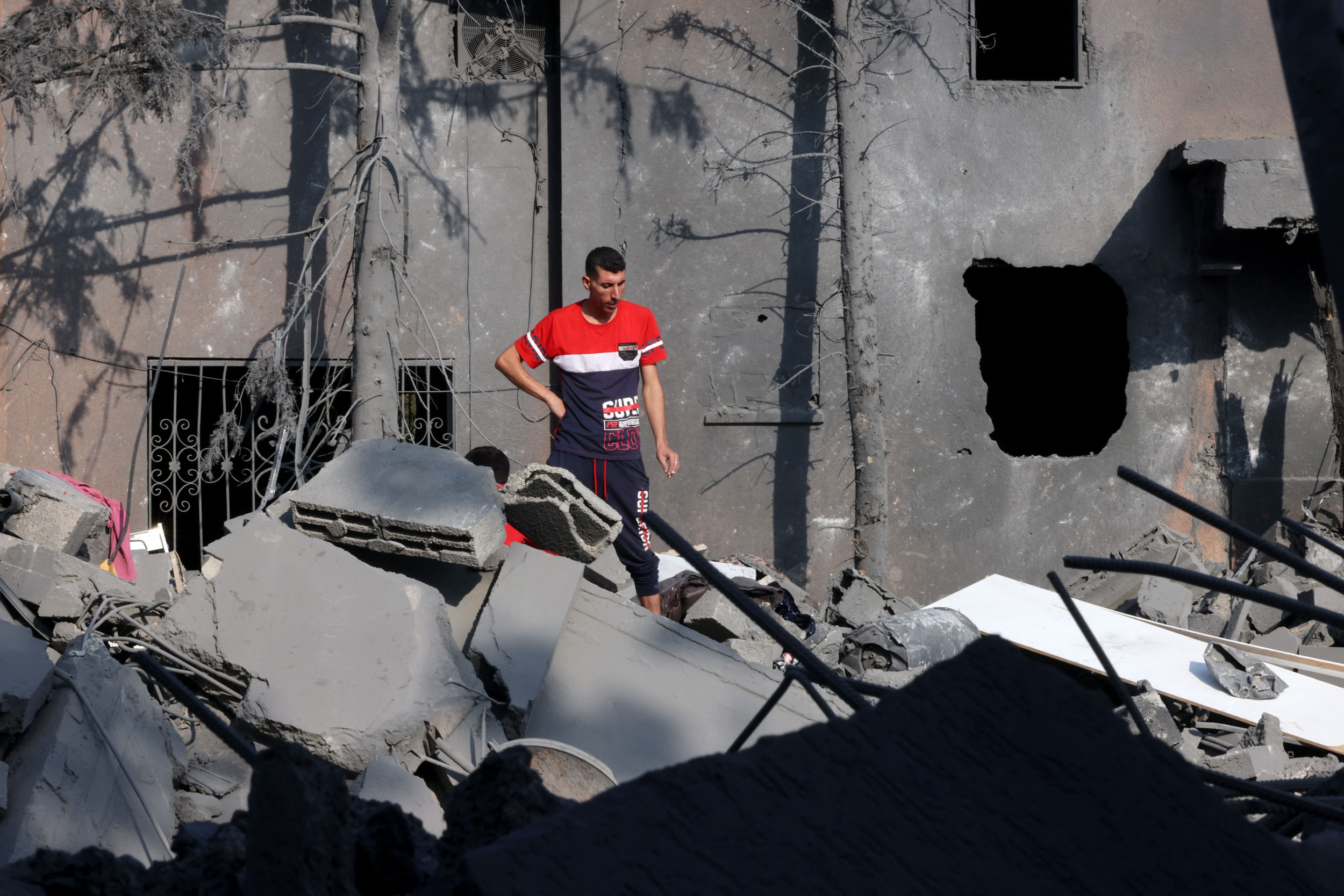Palestinians in northern Gaza are scrambling to head south after Israel extended a deadline for the evacuation of the area.
Israel Defense Forces (IDF) told more than 1 million residents of northern Gaza on Friday to flee south within 24 hours, a deadline that expired at 5 a.m. Saturday. The deadline was updated, with Avichay Adraee, IDF spokesperson for the Arab media, issuing a statement that the IDF would allow the safe passage of Palestinians on approved routes between 10 a.m. and 4 p.m. local time Saturday.
Israel has vowed to destroy Hamas, which controls the strip, after its militants killed more than 1,300 Israelis and seized dozens of hostages on October 7. The Israelis have put Gaza under a total siege and conducted air strikes that have left over 1,900 people dead, Reuters reported. One expert told Newsweek that the conflict could have profound implications for the region for years to come.
Adraee’s statement read, according to a translation: “For your safety, take advantage of the short time to move south—from Beit Hanoun to Khan Yunis [around 20 miles]. If you care about yourself and your loved ones, go south as instructed.
“Rest assured that Hamas leaders have taken care of themselves and are taking cover from strikes in the region,” added the post.
Earlier, Israel’s military had dropped flyers in Gaza that read, “terrorist organizations have begun a war against the State of Israel and Gaza City has become a battlefield.”
The flyers called on residents to “evacuate your homes immediately and head to the areas south of Wadi Gaza.” They said people “must not return to your homes until further notice from the IDF,” adding that “shelters in Gaza City must be evacuated.”
“It is forbidden to approach the security wall and anyone who approaches exposes themselves to death,” the flyers said, according to a translation from the Arabic.
By Saturday morning, tens of thousands of Palestinians were estimated to have headed south from northern Gaza, according to the United Nations, which has warned that a humanitarian crisis is unfolding.
Images from Gaza showed people crammed into cars, taxis, pickup trucks and even donkey-pulled carts, while others walked carrying what they could. The Turkish news agency Anadolu reported that staff at the Al-Awda Hospital in northern Gaza said its medical staff would stay put.
The U.S. State Department informed those in Gaza of the possibility of opening the Rafah crossing into Egypt on Saturday afternoon, CNN reported.
Meanwhile, Jordan’s Minister of Foreign Affairs Ayman Safadi said Israel’s displacement of Palestinians would push the region to the abyss of a wider conflict. He added that the blocking of humanitarian aid to Gaza was a flagrant breach of international law.
Jonathan Schachter, a former adviser to Israeli Prime Minister Benjamin Netanyahu, told Newsweek in emailed comments that he believed “we soon will enter the next phase of the war, which will be more intense, more difficult, more costly and more important for the outcomes.
“The conflict extends beyond Israel and Hamas and will have profound implications for war and peace in the Middle East and beyond for years to come,” said the senior fellow of the Center for Peace and Security in the Middle East at the Hudson Institute, New York.
Schachter added that Iran’s support for Hamas, as well as Hezbollah and Islamic Jihad, meant “this was a war between Iran and its terrorist proxies, on the one hand, and Israel, the United States and their partners and allies, on the other.”

